On the morning of September 26, specialist doctor Do Van Long, Department of Neurosurgery - Spine, Minh Anh International General Hospital, said that he had just successfully performed surgery on a male patient (44 years old) with a very large craniopharyngioma, located in a particularly dangerous position.
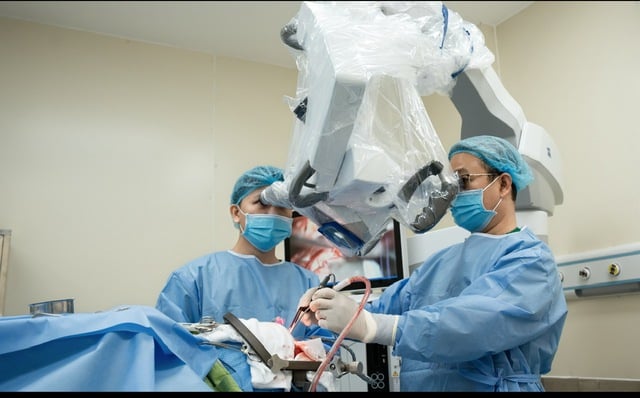
The surgery was successful.
Photo: BVCC
Miraculous recovery of the patient
Using modern imaging diagnostic tools, specialist Dr. Do Van Long discovered that the patient had a very large craniopharyngioma, compressing the pituitary gland, brainstem, hypothalamus and third ventricle.
Specialist Doctor Do Van Long said that large craniopharyngioma has long been considered a big challenge in treatment. With its large size, the surgeon must clearly define each structure, nerve element, blood vessels and structures surrounding the tumor. At the same time, the tumor must be carefully dissected under a magnifying microscope system. Another difficulty is that in addition to removing almost the entire tumor in the brain, the equally important issue is to preserve the pituitary stalk, avoiding damage to the hypothalamus, brain stem and blood vessels.
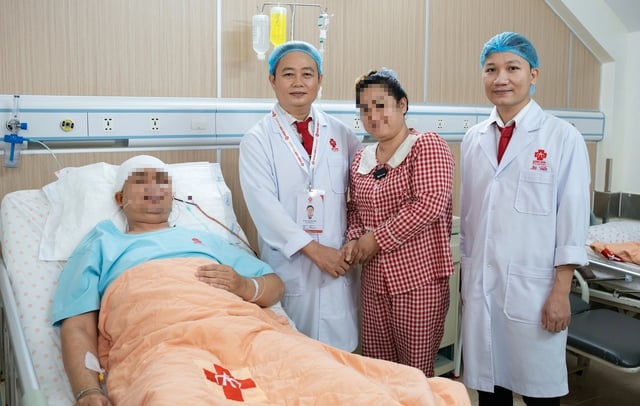
The joy of the patient and family after surgery
Photo: BVCC
In particular, if the hypothalamus is violated, after surgery, the patient may experience severe diabetes insipidus, urinating up to 20 liters of urine a day, requiring an equivalent amount of water to be supplemented, leading to treatment being very difficult and becoming an obsession with the patient's life. Therefore, after surgery for craniopharyngioma, monitoring electrolytes is extremely important.
With modern microsurgery glasses and a team of experienced doctors, just one day after surgery, the patient miraculously recovered, able to clearly answer the doctor's questions, move his arms and legs, and see everything clearly with both eyes.
Craniopharyngioma requires early detection and intervention to minimize complications.
"Craniopharyngioma is congenital, formed and developed from cells remaining in the fetus. If you see any persistent symptoms such as increasing headaches, unexplained vision loss, or signs of endocrine disorders, do not be subjective but proactively go for examination and screening at neurology or endocrinology departments. Early detection and intervention are always the key to effective treatment, minimizing dangerous complications for patients," said specialist doctor Do Van Long.
Source: https://thanhnien.vn/cuu-benh-nhan-bi-khoi-u-so-hau-kich-thuoc-lon-chen-ep-tuyen-yen-185250926131841746.htm





![[Photo] Highways passing through Dong Nai](https://vphoto.vietnam.vn/thumb/1200x675/vietnam/resource/IMAGE/2025/11/12/1762940149627_ndo_br_1-resize-5756-jpg.webp)

![[Photo] Prime Minister Pham Minh Chinh attends a conference to review one year of deploying forces to participate in protecting security and order at the grassroots level.](https://vphoto.vietnam.vn/thumb/1200x675/vietnam/resource/IMAGE/2025/11/12/1762957553775_dsc-2379-jpg.webp)
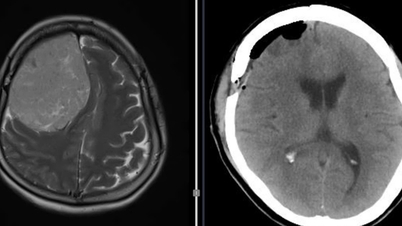

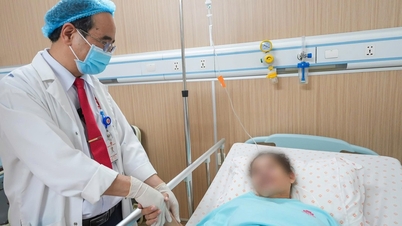
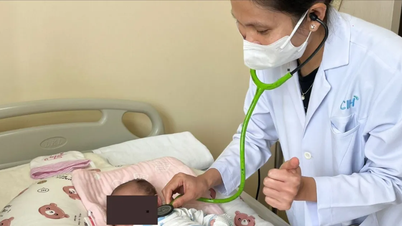

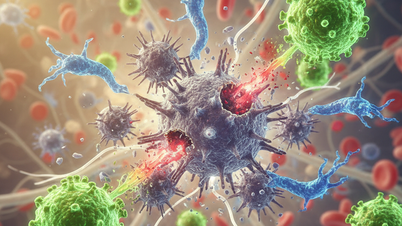








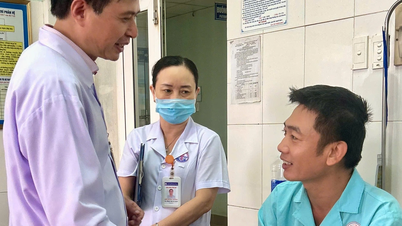

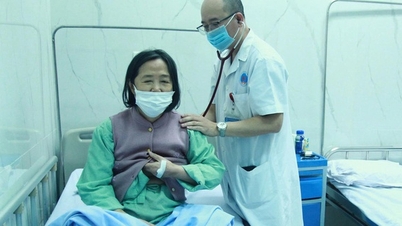











































































![Dong Nai OCOP transition: [Article 3] Linking tourism with OCOP product consumption](https://vphoto.vietnam.vn/thumb/402x226/vietnam/resource/IMAGE/2025/11/10/1762739199309_1324-2740-7_n-162543_981.jpeg)







Comment (0)